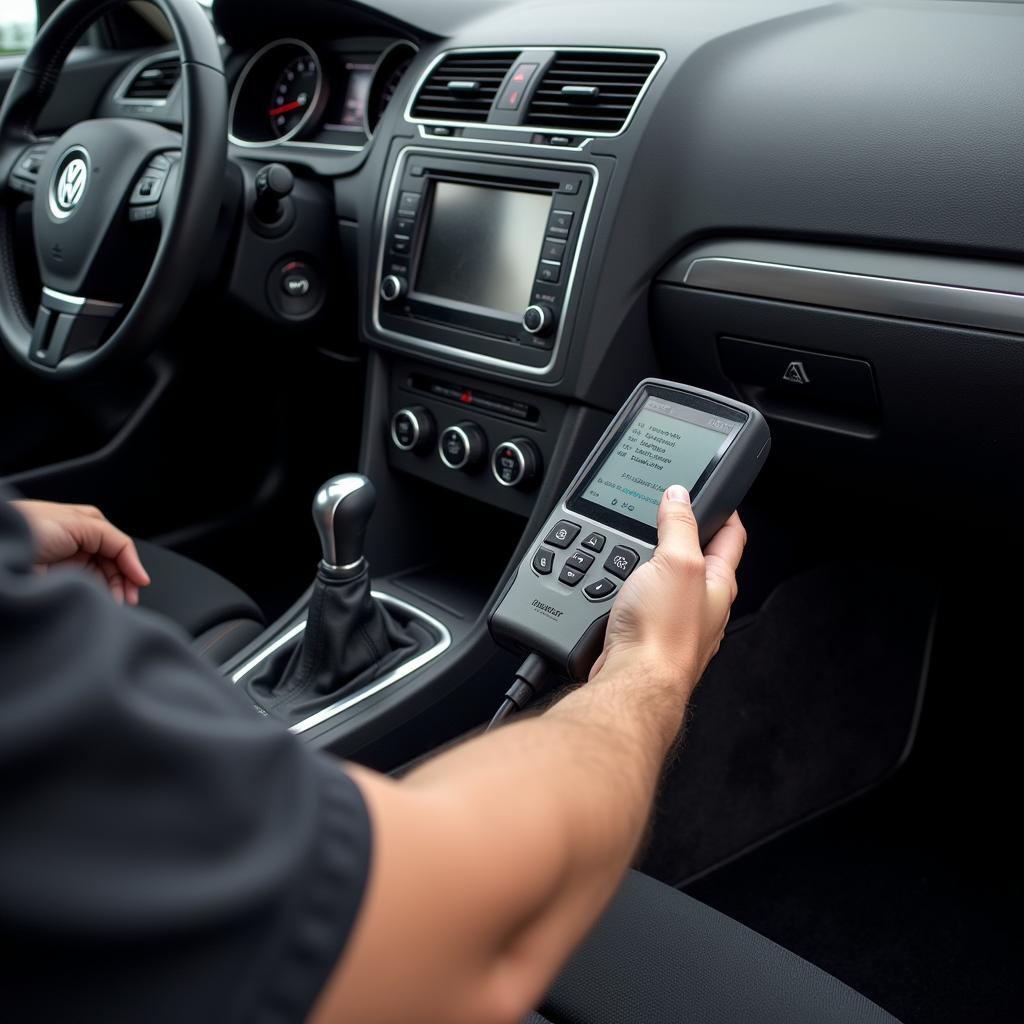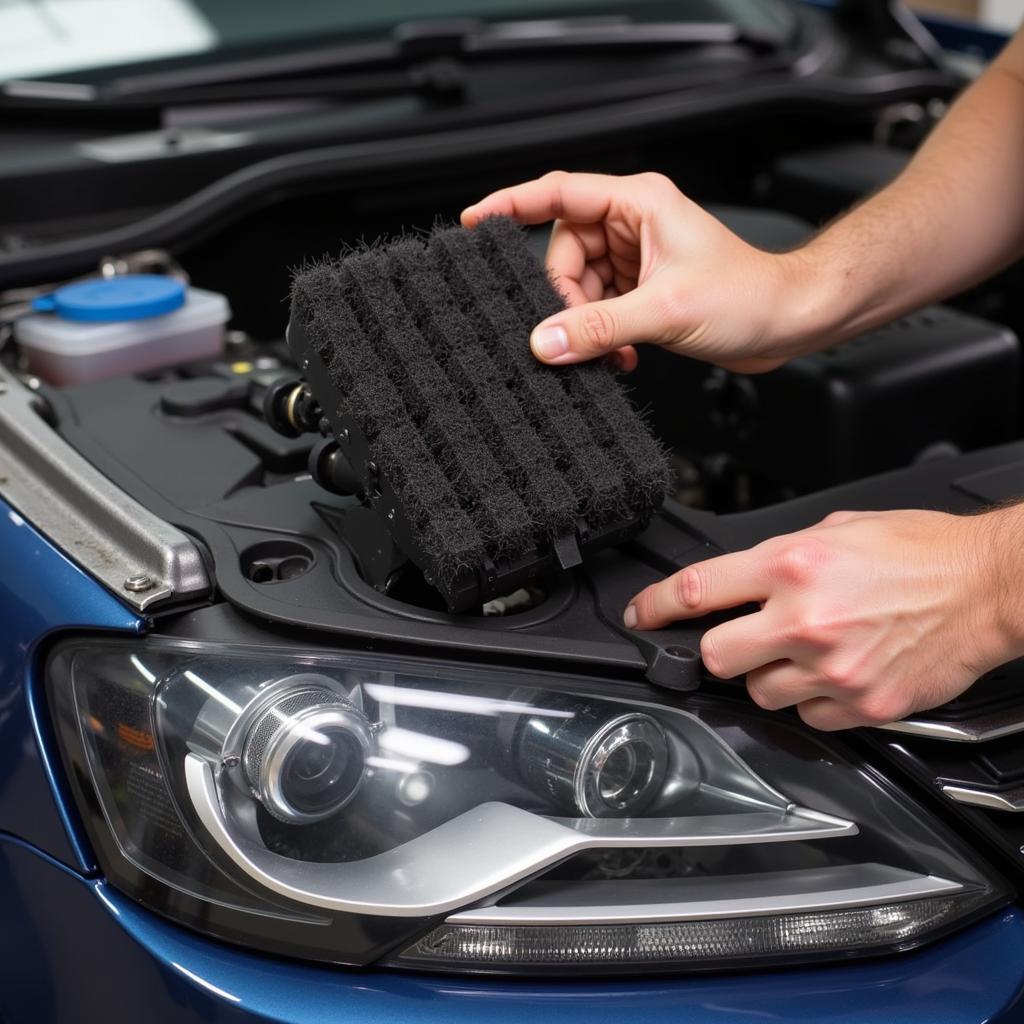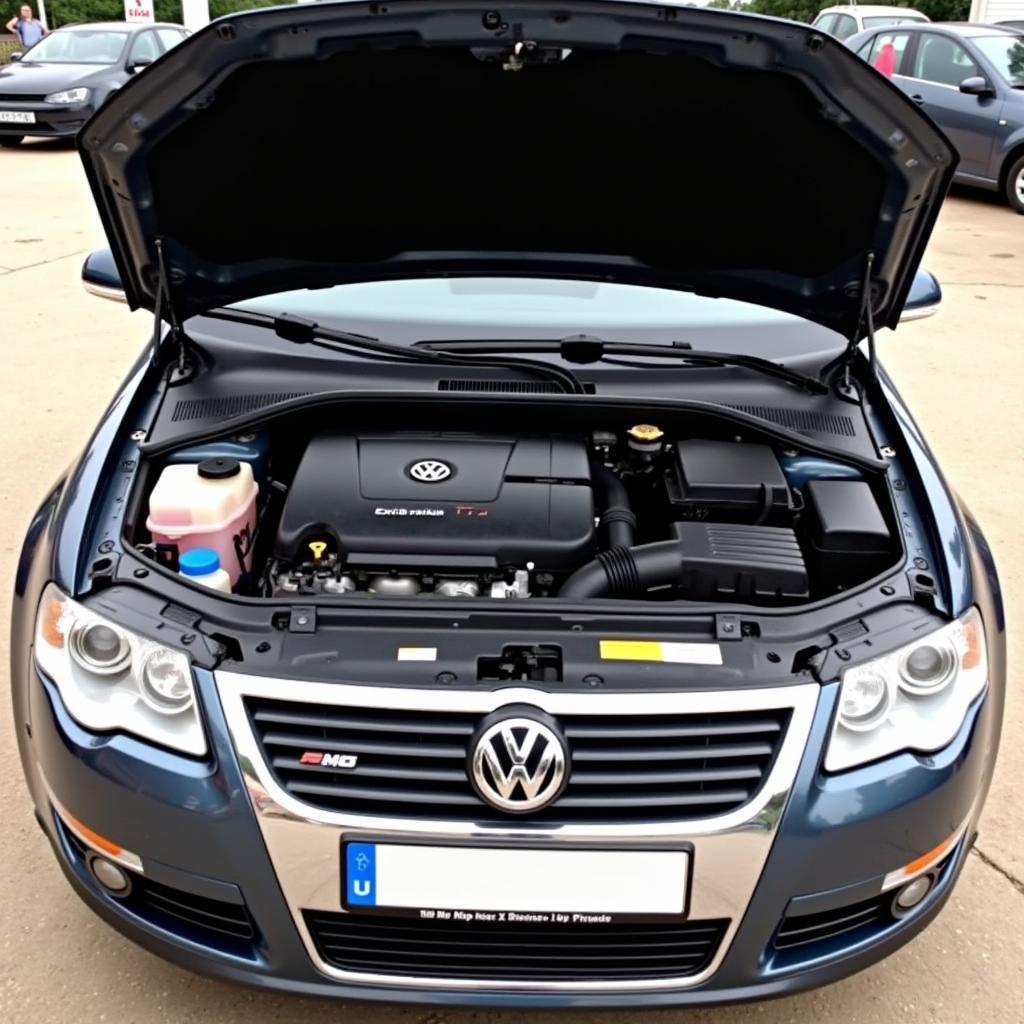Your cart is currently empty!

Understanding the 204F Code for Your 2012 VW Passat TDI
If you own a 2012 Volkswagen Passat TDI, you might encounter a “204F code” on your dashboard. This code indicates a problem with the diesel particulate filter (DPF) differential pressure sensor. This article will guide you through understanding the 204F code, its potential causes, and the steps you can take to resolve the issue.
What Does the 204F Code Mean?
The 204F code specifically points to an issue with the DPF differential pressure sensor. This sensor monitors the pressure difference before and after the DPF, helping your car determine if the filter is clogged and needs regeneration.
A malfunctioning sensor can disrupt the regeneration process, leading to reduced fuel efficiency, decreased engine performance, and potential damage to the DPF system.
Common Causes of the 204F Code
Several factors can trigger the 204F code in your VW Passat TDI. These include:
- Faulty DPF Differential Pressure Sensor: A malfunctioning sensor can send inaccurate readings to the engine control unit (ECU), causing the 204F code.
- Clogged DPF: The DPF can become clogged with soot and ash over time, especially with frequent city driving.
- DPF Pressure Hoses or Wiring Issues: Damaged, blocked, or disconnected hoses or wiring related to the DPF system can also cause the 204F code.
- Faulty ECU: While less common, a malfunctioning ECU can misinterpret sensor readings and trigger the code.
Troubleshooting the 204F Code
 Diagnostic tools for VW Passat TDI
Diagnostic tools for VW Passat TDI
Here are some steps you can take to troubleshoot the 204F code:
- Read the Error Codes: Begin by connecting an OBD-II scanner to your car’s diagnostic port to read the specific error codes. This will confirm if the 204F code is present and might reveal other related codes.
- Inspect the DPF Differential Pressure Sensor: Locate the sensor, usually near the DPF itself. Check for any visible damage, loose connections, or signs of corrosion.
- Inspect the DPF Pressure Hoses and Wiring: Carefully examine the hoses connected to the DPF and the sensor for cracks, blockages, or leaks. Also, check for any damage to the wiring harness.
- Check the DPF Soot Level: Use your OBD-II scanner to check the DPF’s soot level. If it’s excessively high, a forced regeneration might be necessary.
- Consider ECU Inspection: If other components check out, consider having a qualified mechanic inspect the ECU for potential software or hardware issues.
Resolving the 204F Code
 Replacing a DPF on a VW Passat TDI
Replacing a DPF on a VW Passat TDI
Depending on the cause of the 204F code, several solutions might be required:
- Replace the DPF Differential Pressure Sensor: If the sensor is faulty, replacing it is usually a straightforward process.
- Clean or Replace the DPF: If the DPF is clogged, a forced regeneration might be possible. However, severe clogging might necessitate DPF cleaning or replacement.
- Repair or Replace Damaged Hoses and Wiring: If you identify damage to hoses or wiring, repair or replace them as needed.
- Address ECU Issues: If the ECU is at fault, it might require software updates, repairs, or replacement.
“It’s crucial to remember that attempting DIY repairs on complex systems like the DPF can be risky. If you’re unsure about any step, consult a qualified mechanic to avoid further damage.” – John Miller, Senior Automotive Technician
Preventing Future 204F Codes
Here are some tips to help prevent the 204F code from recurring:
- Regular DPF Regeneration: Ensure your driving habits allow for regular passive DPF regeneration. Long highway drives at moderate speeds can help burn off accumulated soot.
- Use High-Quality Diesel Fuel and Additives: Using high-quality diesel fuel and DPF-specific additives can help keep the DPF cleaner and prevent premature clogging.
- Address Engine Issues Promptly: Issues with the engine, such as excessive oil consumption, can contribute to DPF problems.
- Schedule Regular Maintenance: Adhering to your VW Passat TDI’s recommended maintenance schedule, including DPF inspections, can help identify potential problems early on.
 Engine bay of a VW Passat TDI
Engine bay of a VW Passat TDI
Conclusion
The 204F code on your 2012 VW Passat TDI indicates a problem with the DPF differential pressure sensor or related components. By understanding the potential causes and following the troubleshooting steps, you can identify the root cause and take the necessary steps to resolve it.
If you’re unsure about any aspect of the diagnosis or repair, seeking professional help from a qualified mechanic is crucial. For expert assistance with your 2012 VW Passat TDI, contact VCDSTool at +1 (641) 206-8880 and our email address: vcdstool@gmail.com or visit our office at 6719 W 70th Ave, Arvada, CO 80003, USA.
Let us help you get back on the road with confidence!
by
Tags:
Leave a Reply